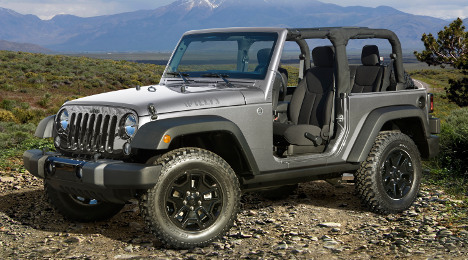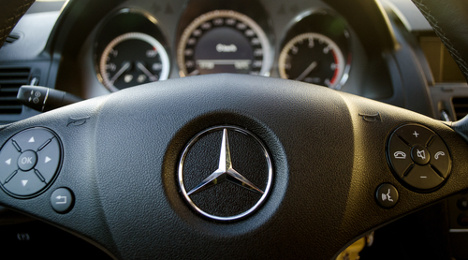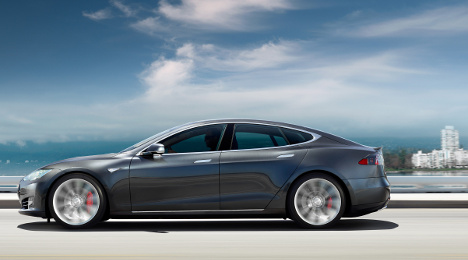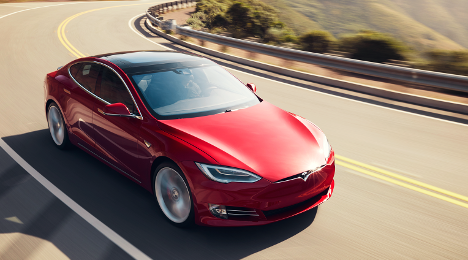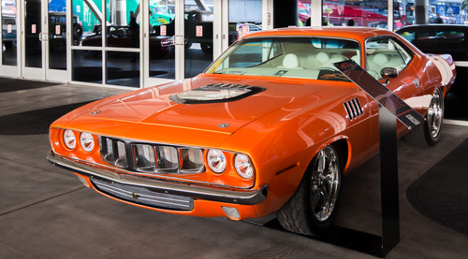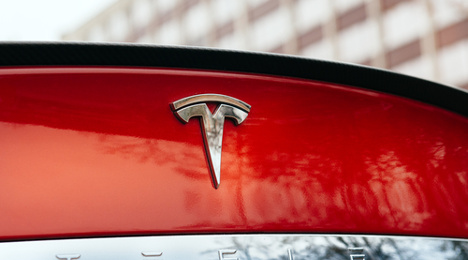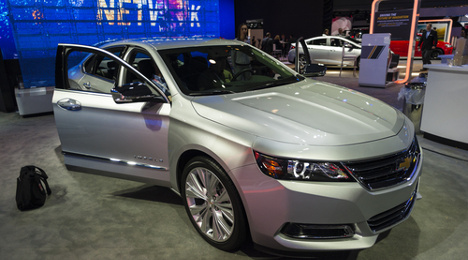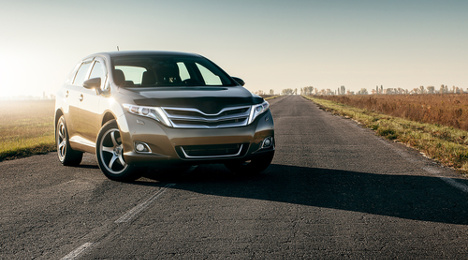A new survey from CarGurus reveals that the first car buying experience of millennials starkly differs from that of previous generations.
Compared to millennials, baby boomers were not only found to have been more involved when selecting their first car, but were also far more likely to have contributed to the purchase cost, the online automotive shopping platform said.
While only 37 percent of millennials surveyed said they contributed to the cost of their first car, 65 percent of baby boomers told CarGurus they paid for some or all of their first car, according to the survey. And 53 percent of Gen Xers contributed to the cost of their first car.
“Our data shows a clear generational shift in the dynamics of first car purchase,” said Sarah Welch, senior vice president of consumer marketing, said in a news release. “Given the rise of autonomous vehicles, ride sharing and sweeping urbanization, it will be interesting to see if future generations show the same trend in parents controlling the first car purchase or if we’ll see a drop-off in dependents needing a car at a younger age.”
Twenty-three percent of millennials’ first cars were hand-me-downs, while only 10 percent of baby boomers were, according to the survey.
The survey also found that millennials were more likely to receive their first car from a family member, and were just as likely to not have a choice. Thirty-four percent of the millennials surveyed said they were given their first car for either school, a job or extracurricular activity.
Thirty-three percent of millennials did not have a say in their first car, as opposed to 24 percent of baby boomers.
Although the survey shows clear differences in first car buying experiences between generations, it presents a few similarities, as well.
The survey found that 83 percent of all first cars were either bought or given used and 55 percent of drivers got their first car between the ages of 16 and 18.
Additionally, the survey also asked participants to name their favorite car brands. Chevrolet is the only brand to top each generation’s list of favorite brands. The overall most popular brands amongst all the drivers surveyed are Ford, Chevrolet, Toyota, Honda and Dodge, respectively.
The following are lists of the top five brands for each generation.
Baby boomers: Most popular first-car brands
- Ford
- Chevrolet
- Volkswagen
- Plymouth
- Toyota
Generation X: Most popular first-car brands
- Ford
- Chevrolet
- Toyota
- Dodge
- Pontiac
Millennials: Most popular-first car brands
- Chevrolet
- Honda
- Toyota
- Ford
- Nissan
CarGurus said it conducted the online survey of more than 1,800 randomly selected participants last month. Survey participants included drivers who have owned a car, ranging from 18 years of age to 70.
Whether they’re hauling surfboards in California, trekking mountains in Carolina or navigating the Capital Beltway, used-car shoppers, as it turns out, are apparently big fans of the Jeep Wrangler.
CarMax looked at search data from its website and found that, so far this year, the Wrangler has been the most-searched-for used vehicle nationwide.
It wasn't just popular at the beach or in the mountain states; the Wrangler ranked No. 1 in places like Indiana, Nebraska and Illinois, and was the top search in Washington, D.C.
It was No. 1 in 26 states and cracked the top five in 49 states. The lone exception? Minnesota.
Regionally, the Wrangler was the top search in the Northeast, Southeast, Midwest and West. It ranked second in the Southwest.
“With its maverick spirit and rugged outdoorsy vibe, the Wrangler captures the hearts and imaginations of car shoppers from all regions of the country,” reads a blog post from CarMax.
Of course, it wasn’t the only the vehicle piquing folks’ interests on CarMax.com
The Chevrolet Silverado and Ford F-150, for example, also cracked the national top five and had some regional strength, as well.
Here’s how the search rankings shake out by region:
Northeast
1. Jeep Wrangler
2. Jeep Grand Cherokee
3. Ford F-150
4. Honda Accord
5. Ford Explorer
Southeast
1. Jeep Wrangler
2. Ford F-150
3. Chevrolet Tahoe
4. Honda Accord
5. Chevrolet Silverado 1500
Midwest
1. Jeep Wrangler
2. Ford F-150
3. Ford Explorer
4. Jeep Grand Cherokee
5. Chevrolet Silverado 1500
Southwest
1. Ford F-150
2. Jeep Wrangler
3. Chevrolet Silverado
4. Chevrolet Tahoe
5. Toyota 4Runner
West
1. Jeep Wrangler
2. Ford F-150
3. Toyota Tacoma
4. Chevrolet Silverado 1500
5. Toyota 4Runner
For the full rankings (including various cities and states), see CarMax's post on 2017's Most Wanted Cars.
While quality and affordability are regarded as key decision factors when purchasing a car, America’s growing group of millennial consumers are most likely to consider brands that fit with their personal image instead, according to Cambridge Analytica, a data analytics and behavioral communications provider
“Finding brands which fit their personal image was the largest growing factor amongst millennials when compared to older respondents,” Cambridge Analytica Data Scientist Tom Richardson said via email when Auto Remarketing asked about the study’s findings.
Fitting personal image was found to be the largest differentiating factor between the youngest consumers and older car buyers, he said.
Cambridge Analytica found this and several other trends following its study which examined American car buying habits across key demographics.
About a third of millennials surveyed said fitting personal image was “extremely important,” while only a quarter of all respondents said the same, according to the study.
Last summer, Cambridge Analytica asked 3,018 respondents to consider the following set of factors: fits with personal image, affordability, high quality, driven by celebrities, brand reputation, made in the USA and environmentally friendly.
“When dealing with younger customers we might advise dealers to use a sales pitch based on matching an individual’s style and perhaps offer small personifications/bonus extras with the cars,” Richardson explained.
According to the study, Audi is the most desired brand amongst the millennials surveyed and Lexus and Honda ranked the lowest, which suggests the two brands don’t align with a millennial’s personal image.
Car owners vs. non-owners
The study also found that car ownership status rather than age is the best predictor when identifying shoppers who rate environment as important.
While environmental impact was found to be generally less important than both affordability and quality, 10 percent of respondents without a vehicle said they consider environmental factors extremely important.
Those without a car also consider affordability to be extremely important more often than quality. The group is 10 percent less likely to rate quality as extremely important and about 6.5 percent more likely to rate affordability as extremely important, according to the study.
Similarly, respondents who already own a car told Cambridge Analytica they are mostly interested in vehicles that offer higher quality than what they currently own.
Men vs. Women
High quality and affordability were the most important factors for both men and women.
But while a majority of both genders agree that the two factors are extremely important when choosing a new car, about 10 percent more women than men believe affordability, in particular, is extremely important.
Additionally, men are almost two times more likely than women to select BMW as their most desired brand, according to the study.
Other luxury brands such as Mercedes and Lexus were also found to be favorite brands for men.
Women were found to desire Japanese economy brands like Honda and Toyota most, while they significantly favor the Jeep brand more than men. Meanwhile, 7.6 percent of the women surveyed chose the American brand as their favorite compared to just 4.5 percent of men.
Interestingly, Audi was equally as popular with both genders: 7.8 percent of men chose the brand and so did 7.8 percent of women, according to the study.
Cambridge Analytica’s study was conducted online in June 2016, “when most people began talking about 2017 car models,” Richardson added.
As millennials continue to turn from the way previous generations have shopped in this digital age, their growing desire for luxury vehicles has surpassed older generations as well, according to the Harris Poll's 29th annual EquiTrend Study.
The report on consumer’s preferences reveals what Harris found to be the strongest brands across the automotive industry as well as the media, travel, financial, entertainment, retail, restaurant, technology, household and nonprofit industries.
“Millennials may not be as indifferent to American car culture as is often suggested — their aspirations for luxury are driving the U.S. automotive brand landscape,” The Harris Poll said.
Seven of the top 10 millennial car brands are luxury brands, compared to five each for both Generation X and baby boomers, the poll shows.
This year, Mercedes-Benz reclaimed the Luxury Automotive Brand of the Year honor from Lexus.
Up until last year, the German luxury brand steadily held the title from 2011 to 2015.
Compared to an equity rating of 66 among consumers overall, Mercedes-Benz has an equity score of 73 among millennials.
"Millennials are changing not just what we want to drive, but how we drive and how we shop for cars," Joan Sinopoli, vice president of brand solutions at The Harris Poll, said in a news release. "While maybe not a full-blown romance, the flirtation with cars as part of our culture is alive and well with younger generations. Millennials aspire to luxury, and this is nowhere more evident than in the automotive industry, where they are behind Mercedes-Benz's equity strength."
Additionally, the Non-Luxury Automotive Brand of the Year title for the third consecutive year is Toyota.
The Harris Poll said “Mercedes-Benz and Toyota's equity scores rank in the top 25 percent of all brands measured, across industries.”
While the poll showed millennials deeply aspire to drive luxury brands, that admiration isn’t expected to translate into a generation of an overwhelming population of luxury vehicle owners.
Harris points out that desire doesn’t at all mean the generation is more likely to own luxury cars than older generations.
The younger generation influence on infotainment
Though not an award category, Harris said OEM infotainment equity increases each year and there's evidence that millennials are influencing the category's growth.
The poll also suggests that the industry should expect millennials to notably influence car audio, considering their preference for Beats systems over Bose, according to Harris.
Thirty-three percent of millennials are familiar with Beats, compared to 17 percent of consumers overall.
"Millennials are extremely familiar with, and think highly of, both brands, but they may more strongly associate Beats with mobility whereas they associate Bose (Home Entertainment Electronics Brand of the Year) with high-quality sound in-and-around the home," Sinopoli said.
"With the growth in car audio and infotainment equity, we see cars not-so-gradually changing from a durable to a true lifestyle purchase, a mobile business and entertainment hub," said Sinopoli.
This year’s EquiTrend Study is based on a sample of 102,617 U.S. consumers ages 15 and over.
Consumers born between 1977 and 1995 are defined as millennials, according to The Harris Poll.
A total of 4,052 brands were rated, and respondents were asked to rate 40 randomly selected brands.
Harris Poll’s complete EquiTrend Brands of the Year list can be found at http://www.theharrispoll.com/equitrend-rankings/2017.
Jumpstart Automotive Media discovered a 6-percent uptick in shopping for used cars across its portfolio of sites during the first quarter, which it attributes to a rise in shoppers looking for used luxury vehicles, in particular.
Used luxury shopping is up 11 percent year-over-year, while down 3 percent for new, according to Jumpstart’s latest quarterly report, titled Share of Shopper Interest Highlights.
Similarly, among non-luxury brands, shopping is up 4 percent for used cars and down 2 percent for new.
“This is one of the shifts we have expected to see as new cars sort of flatten from a retail and sales standpoint and also as the supply becomes greater on the used side,” Jumpstart marketing and strategic insights vice president Libby Murad-Patel said in a phone interview with Auto Remarketing.
“Between sales and from our audience standpoint, luxury is driving a lot of this activity.”
She said from a sales standpoint, a lot of the luxury brands are holding very strong right now.
According to Murad-Patel, the used market is growing because those shoppers interested in the technology of new vehicles and shoppers who want to try luxury for the first time often seek out used models.
“Why it particularly effects the used market is because used prices are starting to soften a little bit, and it’s a great way for someone to enter the luxury space for the first time,” Murad-Patel said.
“We definitely see that on the certified side or near-new vehicles in the 1- to 3-year-old age range, that is typically a nice entry point for a consumer who maybe doesn’t typically buy luxury, but wants test out those brands because you get such a good price discount. You’re getting a good product with low mileage, newer technology and high-end features,” she said.
Interestingly, Patel said the brands that are starting to see more interest from shoppers aren’t the biggest brands, such as Audi, Mercedes, and BMW, but some of the smaller luxury brands like Jaguar, Land Rover and Tesla.
“Certainly Tesla’s been in the news a ton, so they're seeing a lot of growth as well,” she added.
Additionally, Jumpstart’s latest quarterly report features the vehicle segments, makes, and models that captured the largest share of online auto shoppers during Q1.
The data reported represents the percentage share of online shoppers across Jumpstart’s portfolio that consists of more than 25 million in-market auto shoppers researching vehicles.
Pre-owned Tesla Model S vehicles sell notably faster than some of its U.S. counterparts’ best-selling used models, according to Autolist.
The firm recently released a study that delved into used Tesla vehicles’ overall market performance relative to those of General Motors and Ford.
The pre-owned Model S averages 87 days on market, 5 percent below its peer group, reports the buyer intelligence firm’s study titled, Changing of the Guard: Tesla vs GM & Ford. That peer group includes the Audi A7, Porsche Panamera, BMW 6 Series, Mercedes-Benz CLS, and Lexus LS 460.
The top used models from GM and Ford — the Ford F-150, Chevrolet Silverado 1500, Chevrolet Malibu and Ford Fusion — spent between 88 days and 104 days on the market.
Additionally, the Model S also has higher pre-owned prices relative to expectations than top-performing GM and Ford vehicles.
Prices of the Model S have trended between 3 percent and 5 percent above expectations for the past year.
Meanwhile, prices for the top-performing used GM and Ford models have trended within 1 percent (above or below) expectations throughout the past year,
To compile this study, Autolist’s analysts took a look at more than 10 million vehicles from April 2016 to January.
“One thing important to understand about our study is — why we think its impactful — is because it’s a comparison relative to a peer group. And that’s a really important element of this analysis because if you’re just comparing raw numbers overall, you can control a cross segment,” Alex Klein, vice president of data science at Autolist, said in a phone interview with Auto Remarketing.
“But what this is really about is … Tesla’s performance relative to its competitors and Ford and GMs performance relative to its competitors. And when you think about things through that lens, that is really what drives brand perception, market value, investment financials, and so on and so forth.”
With the next Tesla model — the Model 3 — set to debut later this year, Klein said the brand's performance in coming years could be determined by the reception of this model, which would be its first mass-market vehicle.
“They have thus far just been a luxury market loyalty group,” he said. “And so when you introduce a mass-market vehicle at scale, there are a lot of potential benefits to getting more people involved with what is an incredible brand at a baseline level.”
According to a J.D. Power report released last month, drivers who purchase the brand’s lowest-price sedan are less likely to be comfortable with any technology-related snags.
Klein said, “Getting the Model 3 involved will get more people to engage with the Tesla brand and could potentially even further accelerate their performance relative to competitors as more car buyers are able to move from a traditional petroleum powered car to an electric vehicle.”
He said Tesla customers are likely to become interested in buying EVs over the long-term, which again has benefits for Tesla, but could also have benefits for other EVs on the market in the future, too.
“When you are buying a Tesla you are buying a next-generation automobile. There’s a perception that people are pushing the bounds of technology and they are being part of the forerunners of next-generation technology whenever they step foot in a Tesla,” Klein added.
More info on the study can be found here.
Recently Black Book, analyzed various affordable cars once purchased modestly at MSRP that have significantly risen in value and have become great collectibles.
"What makes a car a collectible over time includes any number of factors that include popularity, pop culture, and production volume," Black Book's specialty products director Eric Lawrence said in a news release. "Many people think today's uber-expensive vehicles always came with a hefty price tag, but these vehicles show that's clearly not the case."
The 1971 Plymouth Barracuda — which tops Black Book‘s list of collectables— was once purchased at an asking price of $4,296.
Today it’s valued at $2.5 million, according to the company.
The four-and-a-half-decade-old vehicle has seen a 58,000-percent increase in value over time.
Just behind the Barracuda is the 1967 Shelby Cobra.
It was once bought for $7,500 and has a present day value of $1.3 million, a 17,000-percent increase.
Other popular models Black Book named are the Cadillac Eldorado, Chevrolet Corvette, Pontiac Bonneville, Ford Thunderbird and Ford Mustang GT.
The following is the list Black Book compiled, along with each vehicles' current estimated value.
1971 Plymouth Barracuda: $2,500,000
1967 Shelby Cobra: $1,300,000
1971 Pontiac GTO: $225,000
1948 Chrysler New Yorker: $140,000
1965 Porsche 911: $250,000
1959 Cadillac Eldorado: $270,000
1967 Chevrolet Corvette: $165,000
1968 Dodge Charger R/Tc: $135,000
1957 Pontiac Bonneville: $175,000
1969 Chevrolet Camaro: $95,000
1957 Ford Thunderbird: $85,000
1965 Ford Mustang GT: $68,500
Despite some quality issues with the Tesla Model S and Model X, current Tesla owners appear to have great appreciation for the brand, but drivers who purchase the brand’s upcoming model — the Model 3 — are less likely to overlook complications, according to a J.D. Power report released on Tuesday titled Tesla: Beyond the Hype.
In March 2016, Tesla chief executive officer Elon Musk announced that later this year the “affordable” Model 3 electric car would launch at a starting price of $35,000.
Consumers reserved more than 115,000 of the brand’s lowest priced sedan on the first day the automaker allowed for orders to be made, according to Tesla.
"When consumers buy a mass-market car priced around $35,000 that will be their primary mode of transportation, the degree of expectation will increase immensely," Kathleen Rizk, director of global automotive consulting at J.D. Power, said in a news release.
"We've seen that with other well-liked brands, whether or not it involves an electric vehicle."
Tesla: Beyond the Hype is an in-depth examination of Tesla’s quality issues that is based on multiple focus groups of brands owners, as well as the evaluation findings of automotive research experts at J.D. Power who judged each of Tesla’s models against other competitive vehicles.
“Tesla owners see themselves as pioneers who enjoy being early adopters of new technology,” Rizk added.
“Spending $100,000 or more on a vehicle that has so many problems usually would have a dramatically negative effect on sales and brand perception. Right now, though, Tesla seems immune from such disenchanted customers.”
Consumer Reports’ Annual Owner Satisfaction Survey also evaluated the satisfaction of Tesla owners recently.
In December, their survey revealed that the Tesla, Porsche, Audi and Subaru were the top four brands among consumers last year for consumer satisfaction.
The following lists the top 10 brands of Consumer Reports' car owner satisfaction brand rankings.
-
Tesla: 91%
-
Porsche: 84%
-
Audi: 77%
-
Subaru: 76%
-
Toyota: 76%
-
Honda: 75%
-
Mazda: 74%
-
Chrysler: 73%
-
Chevrolet: 73%
-
Lexus: 73%
Consumer Reports said it determined model satisfaction by the percentage of survey participants who responded “definitely yes” to the question of whether they would buy the same vehicle again.
The analysis examined cars from model years 2014 to 2017 to represent the current state of the brands.
The brand rankings represent owner sentiment across each brand’s product line, and more than 300,000 vehicles were included in the survey, according to Consumer Reports. Additionally, brands had to have at least two models to qualify for the survey.
Jumpstart Automotive Media announced on Monday that it found the Chevrolet Impala — one of two Chevrolet models recently named on Consumer Reports' 10 Top Picks of 2017 list — to be the most cross-shopped non-luxury vehicle amongst consumers last year.
“Chevrolet Impala’s size lends itself well to consumers who are deciding between midsize or large sedans as well as those who are considering moving into an SUV or CUV from a large sedan,” Libby Murad-Patel, the vice president of strategic insights and analytics at Jumpstart, said in a news release.
“This, of course, means it could lose consumer interest to other segments but also puts it in a unique position to gain new customers. And the higher shopper interest we’re seeing across our sites could lead to potential sales growth in 2017.”
Last year, Impala shoppers viewed an average of 9.6 vehicles when checking out the large sedan; that’s 54 percent higher than the average for all non-luxury vehicles, according to Jumpstart.
The Cadillac Escalade, Audi A3, BMW X1 and Porsche Boxster are the only models to carry a higher vehicle average than the Impala. The luxury brands carried averages of 11.2, 10.9, 10.3, and 10.3 respectively.
Jumpstart based this finding on a minimum threshold of a half million shoppers. While the Toyota Yaris iA holds an average of 9.9, it did not meet the minimum threshold.
According to Murad-Patel, a higher average doesn't necessarily mean better because lower cross-shopping could also indicate higher loyalty.
“In this case, Impala sits in a segment where it tends to get shopper interest from a couple different categories, so while many consumers could be looking to leave sedans for CUVs or SUVs, there are still many sedan shoppers who are looking to move into a larger vehicle, like Impala,” Murad-Patel said.
The following are Consumer Reports top 10 picks of the year, along with the average number of vehicles cross-shopped, according to Jumpstart.
-
Subcompact Car: ToyotaYarisiA, 9.9
-
Compact Hybrid: Toyota Prius, 4.6
-
Luxury Suv: Audi Q7, 5.1
-
Sports Car: Mazda MX-5 Miata, 6.4
-
Small Suv: Subaru Forester, 5.8
-
Midsized Suv: Toyota Highlander, 4.9
-
Compact Pickup Truck: Honda Ridgeline, 3.2
-
Compact Car: Chevrolet Cruze, 6.4
-
Midsized Sedan: Kia Optima, 7.3
-
Large Sedan: Chevrolet Impala, 9.6
Consumer Reports named the Impala top vehicle of the year in the larger sedan segment and named the Chevrolet Cruze the best compact car.
Though luxury brands Lexus and Porsche yield high vehicle dependability, plenty of mainstream vehicle owners are also satisfied with excellent long-term quality, according to the J.D. Power 2017 Vehicle Dependability Study, released Wednesday.
Now in its 28th year, the study examines problems experienced within the past 12 months by original owners of 2014 model-year vehicles.
Ranked highest in vehicle dependability among all brands are tied brands Lexus and Porsche.
This is the sixth consecutive year that Lexus topped the rankings in the study.
"We find buyers are increasingly avoiding models with poor reputations for dependability, so manufacturers can't afford to let quality slip, particularly on their best sellers," Dave Sargent, vice president of global automotive at J.D. Power, said in a news release. "While many expensive and niche vehicles do have excellent quality, the fact is that most consumers are shopping in the high-volume mainstream segments. The good news is that consumers don't have to spend a lot of money to get a very dependable vehicle."
J.D. Power explained that it determines overall dependability by measuring the number of problems experienced per 100 vehicles. Lexus and Porsche received a score of 110 PP100.
“While Lexus and Porsche nameplates lead the industry in vehicle dependability, owners of many high-volume vehicles are also rewarded with excellent long-term quality,” J.D. Power explained.
With a score of 123 PP100, Toyota follows in the rankings, one rank move up in position since 2016.
Toyota models received 10 of the 18 segment awards. The brand now has the highest number of awards ever received by an individual automaker in the study.
The awardees include the Lexus ES, Lexus GS, Lexus RX, Toyota Avalon, Toyota Camry, Toyota FJ Cruiser, Toyota Prius, Toyota Prius v, Toyota Sienna and Toyota Venza.
After Toyota is Buick with a score of 126 PP100 and Mercedes-Benz which received 131 PP100.
At the sixth position — up from 19th in 2016 — is Hyundai, which received a score of 133 PP100. It is recognized for being the most improved brand in the study, improving by 25 PP100 from 2016.
The average score for the industry is 156 PP100, a 4 PP100 increase from 2016.
"In the current industry environment of record levels of leasing and long-term loans, higher residual values allow automakers to provide more competitive deals to buyers," J.D. Power vice president of vehicle analysis and analytics Jonathan Banks said. "This creates the opportunity to achieve higher market share and/or elevated profit margins."
Additionally, J.D. Power found that sustained increases in owner’s technology-related problems have led to dependability weakening in the industry for a second consecutive year.
The 2017 Vehicle Dependability Study was fielded from October to December and based on responses from 35,186 original owners of 2014 model-year vehicles.


